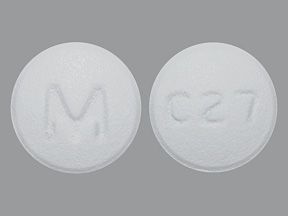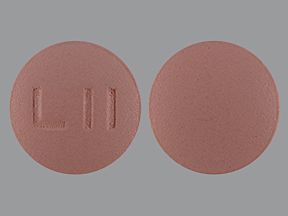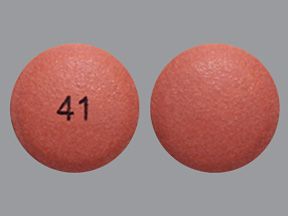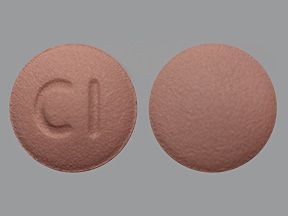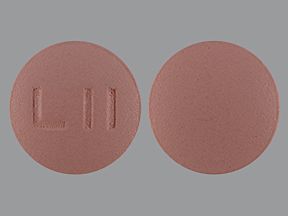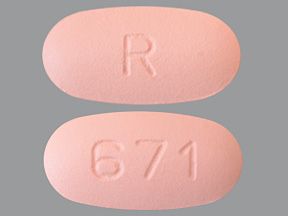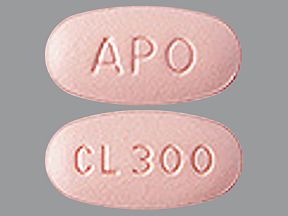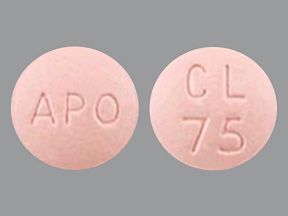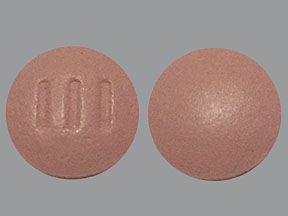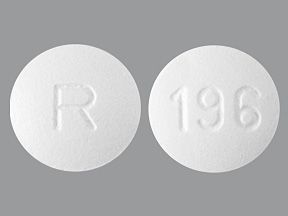Clopidogrel oral tablet is a prescription medication used to prevent heart attack or stroke. It works by preventing blood clots, which it does by keeping platelets in your blood from sticking together.
This drug has a boxed warning. Boxed warnings are the most serious warnings from the Food and Drug Administration (FDA). Boxed warnings alert doctors and patients about drug effects that may be dangerous.
- Clopidogrel is broken down by your liver. Some people have genetic differences in how one of their liver enzymes works. This enzyme is called cytochrome p-450 2C19 (CYP2C19). This difference in function could make your liver process this drug more slowly, which could make the drug less effective. Your doctor may test you to see if you have this genetic difference. If you have it, your doctor will prescribe other treatments or drugs instead of clopidogrel.
- Clopidogrel oral tablet is available as both a generic and brand-name drug. Brand name: Plavix.
- Clopidogrel only comes in the form of a tablet you take by mouth.
- Clopidogrel is used to prevent heart attack and stroke. It’s prescribed for people who have had a recent heart attack or stroke, or who have peripheral arterial disease (poor circulation in the legs).
Clopidogrel oral tablet is a prescription drug that’s available as the brand-name drug Plavix. It’s also available as a generic drug. Generic drugs usually cost less than the brand-name version. In some cases, they may not be available in all strengths or forms as the brand-name drug.
Clopidogrel only comes in the form of a tablet you take by mouth.
Why it’s used
Clopidogrel is used to prevent blood clots if you have chest pain, peripheral artery disease (poor circulation in your legs), a heart attack, or stroke.
This drug may be used as part of a combination therapy. That means you may need to take it with other drugs. Your doctor will decide if you should use this drug with other drugs, such as aspirin.
How it works
Clopidogrel belongs to a class of drugs called platelet inhibitors or thienopyridine class inhibitors of P2Y12 ADP platelet receptors. A class of drugs is a group of medications that work in a similar way. These drugs are often used to treat similar conditions.
Platelets are blood cells that help your blood clot normally. Clopidogrel helps prevent platelets from sticking together. This stops them from forming blood clots.
Clopidogrel oral tablet can cause mild or serious side effects. The following list contains some of the key side effects that may occur while taking clopidogrel. This list does not include all possible side effects.
For more information on the possible side effects of clopidogrel, or tips on how to deal with a troubling side effect, talk with your doctor or pharmacist.
More common side effects
The more common side effects that can occur with clopidogrel include:
- bleeding
- itchy skin
If you have itchy skin, it may go away within a few days or a couple of weeks. If it is more severe or doesn’t go away, talk to your doctor or pharmacist.
Serious side effects
Call your doctor right away if you have serious side effects. Call 911 if your symptoms feel life-threatening or if you think you’re having a medical emergency. Serious side effects and their symptoms can include the following:
- Serious, life-threatening bleeding. Symptoms can include:
- unexplained bleeding or bleeding that lasts a long time
- blood in your urine (pink, red, or brown-colored urine)
- red or black stools that look like tar
- unexplained bruises or bruises that get larger
- coughing up blood or blood clots
- vomiting blood or vomit that looks like coffee grounds
- Blood-clotting problem called thrombotic thrombocytopenic purpura (TTP). This condition can happen after you take clopidogrel, even if you only take it for less than two weeks. In TTP, blood clots form in blood vessels anywhere in the body. Get medical help right away if you have any of these symptoms:
- purplish spots (purpura) on your skin or in your mouth (mucous membrane) due to bleeding under the skin
- yellowing of your skin or the whites of your eyes (jaundice)
- tiredness or weakness
- pale-looking skin
- fever
- fast heart rate or shortness of breath
- headache
- trouble speaking or understanding language (aphasia)
- confusion
- coma
- stroke
- seizure
- low amount of urine, or urine that’s pink or has blood in it
- stomach pain
- nausea, vomiting, or diarrhea
- vision loss
Clopidogrel oral tablet can interact with several other medications. Different interactions can cause different effects. For instance, some can interfere with how well a drug works, while others can cause increased side effects.
Below is a list of medications that can interact with clopidogrel. This list does not contain all drugs that may interact with clopidogrel.
Before taking clopidogrel, be sure to tell your doctor and pharmacist about all prescription, over-the-counter, and other drugs you take. Also tell them about any vitamins, herbs, and supplements you use. Sharing this information can help you avoid potential interactions.
If you have questions about drug interactions that may affect you, ask your doctor or pharmacist.
Diabetes drug
In most cases, repaglinide should not be taken with clopidogrel. Taking these drugs together increases the amount of repaglinide in your body, which can result in low blood sugar levels. If you must take these drugs together, your doctor will carefully manage your dosage of repaglinide.
Stomach acid drugs (proton pump inhibitors)
You shouldn’t take clopidogrel with drugs used to treat stomach acid. They can make clopidogrel less effective. Examples of these drugs include:
- omeprazole
- esomeprazole
Nonsteroidal anti-inflammatory drugs (NSAIDs)
Taking clopidogrel with NSAIDs may increase your risk of bleeding in your stomach and intestines. Examples of these drugs include:
- aspirin
- ibuprofen
- naproxen
Blood thinners
Warfarin and clopidogrel work to thin the blood in different ways. Taking them together increases your risk of bleeding.
Drugs used to treat depression
Using certain antidepressants with clopidogrel may increase your risk of bleeding. Examples of these drugs include:
- selective serotonin reuptake inhibitors (SSRIs)
- serotonin-norepinephrine reuptake inhibitors (SNRIs)
Salicylates (aspirin)
If you have acute coronary syndrome, you should take aspirin with clopidogrel. However, you should not take these drugs together if you’ve had a recent stroke. Doing so increases your risk of major bleeding.
Opioids
Taking an opioid medication with clopidogrel can delay the absorption and reduce the amount of clopidogrel in your body, making it less effective. If you must take these drugs together, your doctor may prescribe an additional medication to help prevent blood clots in certain situations.
Examples of opioids include:
- codeine
- hydrocodone
- fentanyl
- morphine
The clopidogrel dosage your doctor prescribes will depend on the type of condition you’re using the drug to treat.
Typically, your doctor will start you on a low dosage and adjust it over time to reach the dosage that’s right for you. They’ll ultimately prescribe the smallest dosage that provides the desired effect.
The following information describes dosages that are commonly used or recommended. However, be sure to take the dosage your doctor prescribes for you. Your doctor will determine the best dosage to suit your needs.
Forms and strengths
Generic: Clopidogrel
- Form: oral tablet
- Strengths: 75 mg and 300 mg
Brand: Plavix
- Form: oral tablet
- Strengths: 75 mg and 300 mg
Dosage for acute coronary syndrome
Adult dosage (ages 18 years and older)
- Typical starting dosage: 300 mg, taken one time. Starting treatment without a loading dose will delay effects by several days.
- Maintenance dosage: 75 mg, taken once per day.
Child dosage (ages 0 to 17 years)
This drug hasn’t been studied in children and shouldn’t be used in people younger than 18 years.
Dosage for recent heart attack, recent stroke, or peripheral arterial disease
Adult dosage (ages 18 years and older)
- Typical dosage: 75 mg taken once per day.
Child dosage (ages 0 to 17 years)
This drug hasn’t been studied in children and shouldn’t be used in people younger than 18 years.
FDA Warning: Liver function warning
- This drug has a Black Box Warning. This is the most serious warning from the Food and Drug Administration (FDA). A black box warning alerts doctors and patients to potentially dangerous effects.
- Clopidogrel is broken down by your liver. Some people have genetic differences in how one of the liver enzymes, cytochrome p-450 2C19 (CYP2C19), works. This could slow how this drug is broken down in your body and make it not work as well. Your doctor may test you to see if you have this genetic difference. If you have it, your doctor will prescribe other treatments or drugs instead of clopidogrel.
Serious bleeding warning
This drug can cause serious and sometimes fatal bleeding. Clopidogrel may make you bruise and bleed more easily, have nosebleeds, and it will take longer than usual for bleeding to stop. You should tell your doctor about any serious bleeding, such as:
- unexplained, prolonged, or excessive bleeding
- blood in your urine or stool
Warning for surgery or procedure
Before having any procedures done, you should tell your doctors or dentists that you’re taking clopidogrel. You may need to stop taking this drug for a short time before a procedure to prevent bleeding. Your doctor will let you know when to stop taking this medication and when it’s OK to take it again.
Allergy warning
Clopidogrel can cause a severe allergic reaction. Symptoms may include:
- trouble breathing
- swelling of your face, lips, tongue, or throat
Don’t take this drug again if you’ve ever had an allergic reaction to it. You also shouldn’t take this drug if you’re allergic to thienopyridines (such as ticlopidine and clopidogrel). Taking it a second time after an allergic reaction could be fatal.
Alcohol interaction
Alcohol can increase your risk of bleeding while you’re taking this drug.
Warnings for people with certain health conditions
For people with active bleeding: You shouldn’t take clopidogrel if you have an active bleed (such as a brain bleed) or a medical condition that causes bleeding (such as a stomach or bowel ulcer). Clopidogrel prevents clotting and increases your risk of bleeding.
For people with an allergy to thienopyridines: If you’ve ever had an allergic reaction to any kind of thienopyridine, you shouldn’t take clopidogrel.
For people with a recent stroke: You shouldn’t take this drug with aspirin if you’ve recently had a stroke. It can increase your risk of serious bleeding.
Warnings for other groups
For pregnant women: Studies done in pregnant women taking clopidogrel have not shown an increased risk of birth defects or miscarriage. Studies of clopidogrel in pregnant animals also have not shown these risks.
However, there are potential risks to the mother and fetus if a heart attack or stroke occurs during pregnancy. Therefore, the benefit of clopidogrel in preventing these health events may outweigh any risk of the drug on the pregnancy.
Tell your doctor if you’re pregnant or plan to become pregnant. Clopidogrel should be used during pregnancy only if the potential benefit justifies the potential risk.
For women who are breastfeeding: It isn’t known if clopidogrel passes into breastmilk. If it does, it may cause serious effects in a child who is breastfed. You and your doctor may need to decide if you’ll take clopidogrel or breastfeed.
For children: The safety and effectiveness of clopidogrel hasn’t been established in children younger than 18 years.
Clopidogrel oral tablet is used for long-term treatment. It comes with serious risks if you don’t take it as prescribed.
If you stop taking the drug or don’t take it at all: You increase your risk of heart attack or stroke. These conditions can be fatal.
If you have to temporarily stop taking clopidogrel, start taking it again as soon as your doctor tells you to. Stopping this drug may increase your risk of serious heart conditions, stroke, or a blood clot in the legs or lungs.
If you miss doses or don’t take the drug on schedule: Your medication may not work as well or may stop working completely. For this drug to work well, a certain amount needs to be in your body at all times.
If you take too much: You could have dangerous levels of the drug in your body. Symptoms of an overdose of this drug can include bleeding.
If you think you’ve taken too much of this drug, call your doctor or seek guidance from the American Association of Poison Control Centers at 800-222-1222 or through their online tool. But if your symptoms are severe, call 911 or go to the nearest emergency room right away.
What to do if you miss a dose: If you miss a dose, take clopidogrel as soon as you remember. If it’s almost time for your next dose, skip the missed dose. Take only one dose at your regular time. Don’t take two doses of clopidogrel at the same time unless your doctor tells you to.
How to tell if the drug is working: You should not have a heart attack or stroke.
Keep these considerations in mind if your doctor prescribes clopidogrel oral tablet for you.
General
- Don’t cut or crush the tablet.
Storage
- Store clopidogrel at room temperature near 77°F (25°C). It can be stored for a short time at a temperature between 59?F and 86°F (15?C and 30°C).
- Don’t store this medication in moist or damp areas, such as bathrooms.
Travel
When traveling with your medication:
- Always carry your medication with you. When flying, never put it into a checked bag. Keep it in your carry-on bag.
- Don’t worry about airport X-ray machines. They won’t damage your medication.
- You may need to show airport staff the pharmacy label for your medication. Always carry the original prescription-labeled container with you.
- Don’t put this medication in your car’s glove compartment or leave it in the car. Be sure to avoid doing this when the weather is very hot or very cold.
Self-management
Your doctor will teach you and your family members the symptoms of a heart attack, stroke, or blood clot in your legs or lungs. If you have symptoms of these problems, you should go to the emergency room or call 911 right away.
Clinical monitoring
Before starting treatment with clopidogrel, your doctor may do a genetic test to check your CYP2C19 genotype. This genetic test will help your doctor decide if you should take clopidogrel. Some genotypes slow how clopidogrel is broken down. If you have this kind of genotype, this drug may not work for you.
To make sure your medication is working and is safe for you, your doctor will check the following:
- complete blood count (CBC)
- signs of bleeding
Hidden costs
If you’re being treated for acute coronary syndrome, you might have to take clopidogrel with aspirin. Your doctor can tell you more.
Availability
Most pharmacies stock the generic form of clopidogrel. However, not every pharmacy stocks Plavix, the brand-name form. If your doctor prescribes Plavix, when filling your prescription, be sure to call ahead to make sure your pharmacy carries it.
There are other drugs available to treat your condition. Some may be better suited for you than others. Talk to your doctor about other drug options that may work for you.
Disclaimer: Healthline has made every effort to make certain that all information is factually correct, comprehensive, and up-to-date. However, this article should not be used as a substitute for the knowledge and expertise of a licensed healthcare professional. You should always consult your doctor or other healthcare professional before taking any medication. The drug information contained herein is subject to change and is not intended to cover all possible uses, directions, precautions, warnings, drug interactions, allergic reactions, or adverse effects. The absence of warnings or other information for a given drug does not indicate that the drug or drug combination is safe, effective, or appropriate for all patients or all specific uses.






